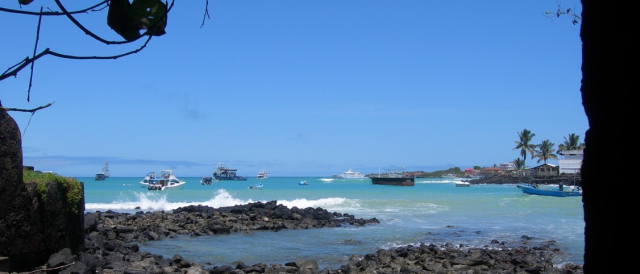Summary
The project assesses the risk of decreases in marine ecosystem productivity as a tipping point for the interlinked ecological, economic and social systems of the Northern Humboldt Upwelling System (HUS). The extreme variability in climate-related productivity of this upwelling system impacts local livelihoods and worldwide markets. One focus of the project is the pelagic, off-shore system supplying the industrial Peruvian anchoveta fishery and its regional and global repercussions through export to international markets.
The second focus are coastal and insular (Galapagos) systems, where artisanal fisheries, aquaculture and ecotourism are key maritime activities for provision of livelihoods. With a consortium of biogeochemists, fisheries ecologists, ocean and ecosystem modelers, economists, social scientists and key stakeholders, both from Germany and Peru, we seek to understand feedbacks between ecological, social and economic dynamics in the HUS.
Based on an array of modeling efforts and tightly linked input from stakeholders, we will explore possible adaptation schemes and derive governance recommendations to reduce the risk of impacts of tipping points on the regional economy and increase the resilience of coastal communities in Peru.
ZMT leads project part T4: Socio-ecological modeling and management strategies
ZMT is involved in working packages (WP) 5 and 6. It dedicates research to tipping point configurations of two coastal (Sechura and Pisco) and one insular (Galapagos) systems through the use of trophic models and social networks and shall also look at climate and El Nino impacts on the pelagic ecosystem, its resources and resource users. For the work in both WPs, the involvement of local stakeholders is essential.
Project Partners |
|---|
|
Dr. Jörn Schmidt (University of Kiel) Prof. Ulf Riebesell (GEOMAR, Kiel) Prof. Myron Peck (University of Hamburg), Prof. Michael Flittner (University of Bremen) Prof. Gerardo Hector Damonte Valencia (Pontificia Universidad Catolica del Peru) |





